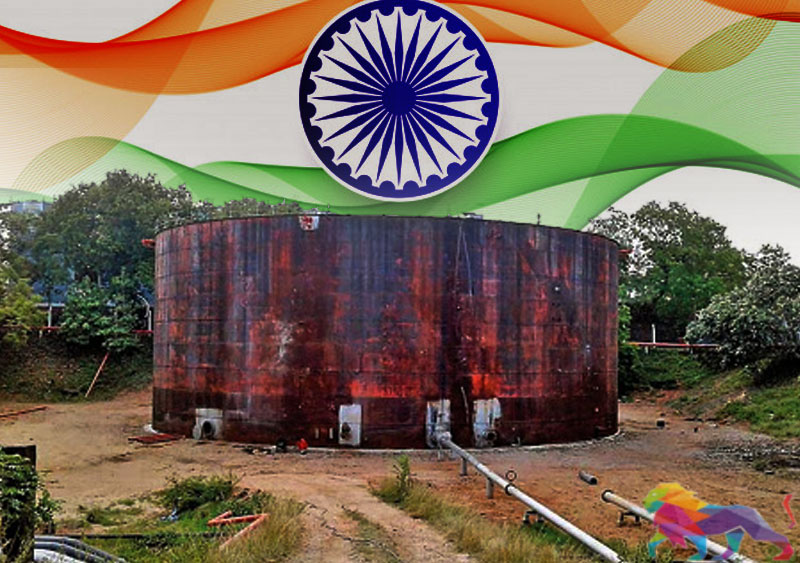Regardless of an agreement being finalised between the Sri Lankan Government and its Indian counterparts in February for Sri Lanka to develop the Upper Oil Tank Farm in Trincomalee, discussions are still ongoing with the relevant officials to proceed with the next step.
Speaking to The Sunday Morning Business, Energy Minister Udaya Gammanpila stated that the progress is very slow despite the discussions held with official Indian counterparts to develop the Upper Oil Tank Farm.
“This is not urgent right now, hence no one is rushing into it. Both parties are trying their best for the best possible outcome in respect of their country’s wishes. However, nobody knows when this will be completed,” Gammanpila said.
Further, Gammanpila noted that this development in Trincomalee will enhance the oil storage capacity in Sri Lanka, as there are a total of 84 unutilised tanks with a capacity of 12,500 metric tons each, adding that money will be required to purchase facilities to store the tanks in the country.
We also spoke to Ceylon Petroleum Corporation (CPC) Chairman Sumith Wijesinghe who also stated that the progress has been slow and will require a little more time to move forward. “The Energy Ministry is having discussions with the High Commissioner of India, and to my understanding, it will take some time,” he noted.
Nevertheless, Lanka Indian Oil Company (LIOC) Managing Director Manoj Gupta told The Sunday Morning Business early this year that the discussions held with the Energy Ministry and its Indian counterparts had been very positive.
“This is a very important development for Sri Lanka. The discussions are very sensitive but also positive, as both the countries are trying their best for the best outcome,” Gupta added.
In February, the Indian High Commission (HC) said in a statement that India and Sri Lanka have identified an energy partnership as one of the priority dimensions of their co-operation, and noted that consultation and discussions have been undertaken to promote mutually beneficial co-operation for the development and operation of the Upper Oil Tank Farms in Trincomalee.
Meanwhile, Gammanpila, when contacted during the same month (February), clarified that both parties were able to come to a consensual agreement to jointly develop the oil tank farm by the LIOC and CPC with majority shares.
“We have not yet come to a conclusion over the management period, the agreement between the shareholders, and the number of tanks that would be released to the CPC. These details are yet to be discussed,” Gammanpila said.
He also noted that only 15 out of 99 oil tanks are currently being used by the LIOC and in 2003, the entire tank farm was leased out to the LIOC for $ 1,000 for a period of 35 years.
The development of the Upper Oil Tank Farm in Trincomalee was initially signed by the previous Government with a Memorandum of Understanding (MoU) on Co-operation on Economic Projects in order to set up a joint venture between the LIOC and the CPC.
According to the agreement signed in the presence of Indian Prime Minister Narendra Modi and then-Sri Lankan Prime Minister Ranil Wickremesinghe in 2017, India had agreed to the Sri Lankan proposal to refurbish and use the 84 giant oil tanks in the Upper Tank Farm as a “joint venture”.
The then Sri Lankan Government proposed the idea of developing and running the tanks as a joint venture in 2016 to store the fuel for power generation in an emergency situation. However, abandoning the measures taken by the previous Government, the present Government initiated fresh rounds of talks with India and LIOC, which have been ongoing for months.
The Sri Lankan Government showed keen interest in reclaiming the tanks, after the country was unable to take advantage of global oil prices dropping to negative levels in the peak of the first wave of the pandemic, due to the lack of storage facilities to store oil.


